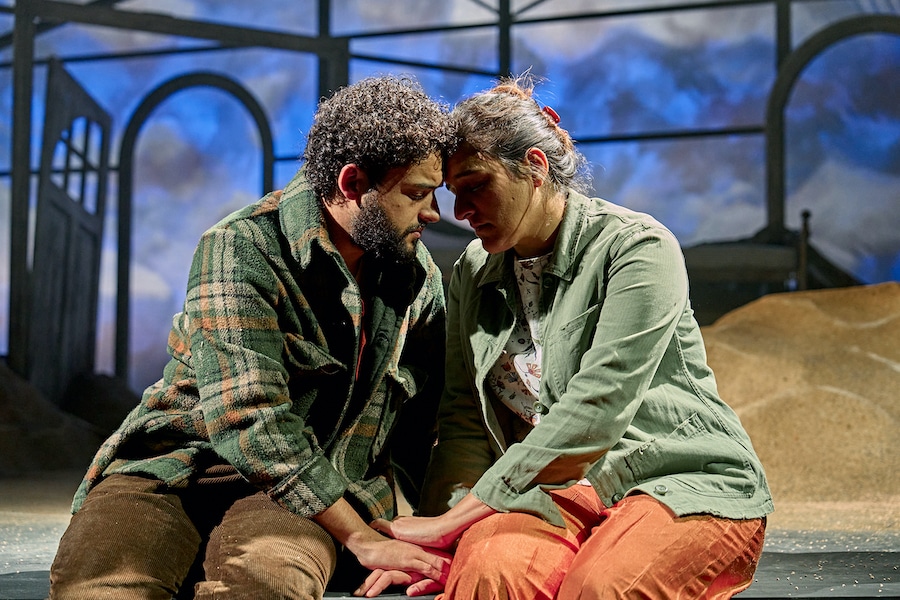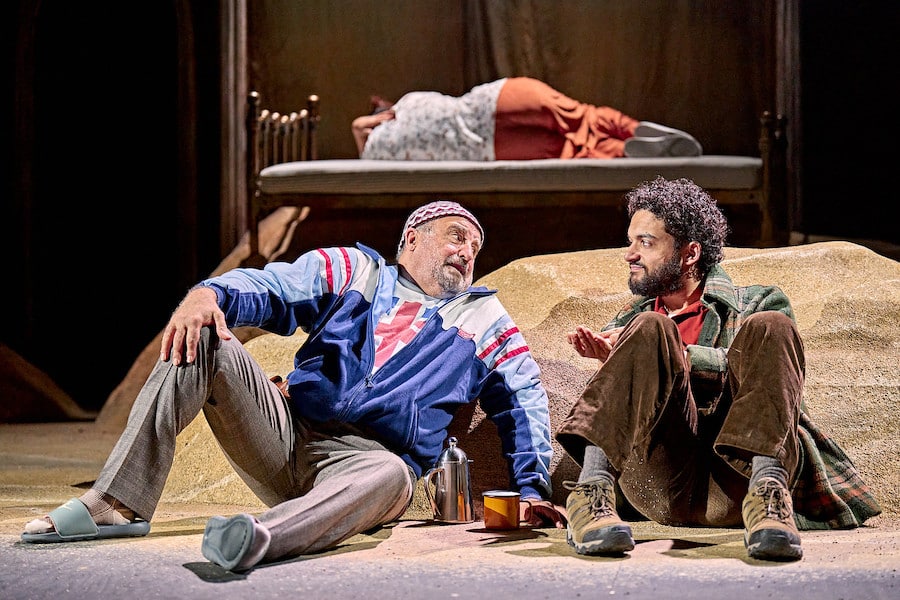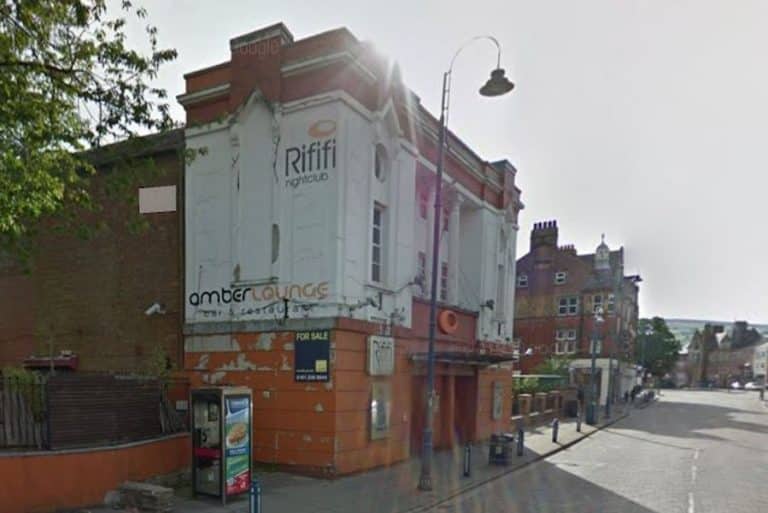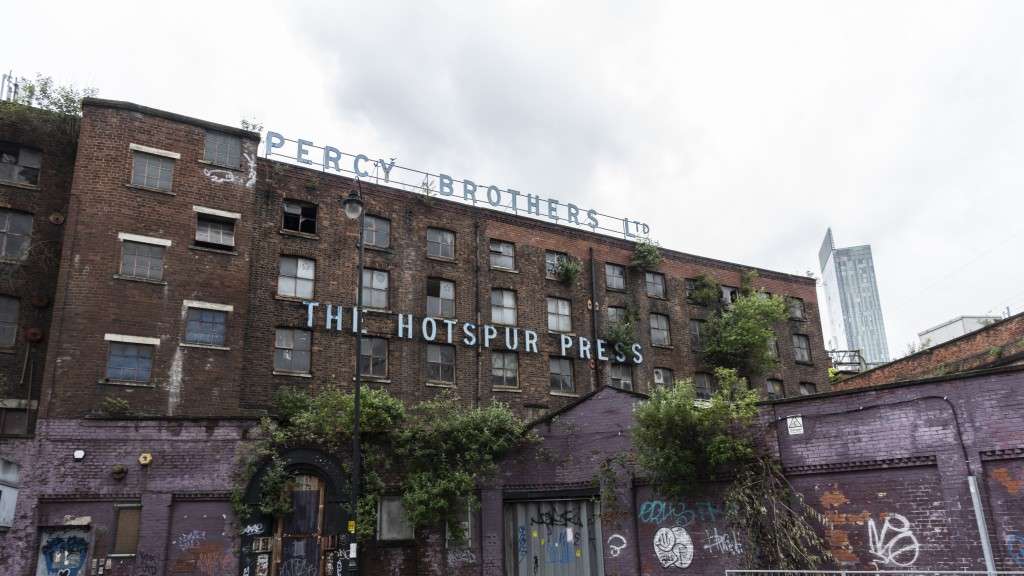Review: The Beekeeper of Aleppo at The Lowry is ‘A tale of resilience, bravery, capturing the human spirit’
- Written by Glenn Meads
- Last updated 2 years ago
- Theatre

The best-selling novel The Beekeeper of Aleppo by Christy Lefteri is beautifully written.
During lockdown and beyond, I stopped reading, as I could not concentrate enough due to everything we were experiencing.
I had this book sitting gathering dust on my bookshelf and I picked it back up last Summer and read it cover to cover.
I could not put it down.
It got me back into reading for pleasure and as a form of escapism from sensational news headlines.
It is a tale of resilience, defiance, and bravery and it perfectly captures the strength of the human spirit when you have been reduced to a stereotype and demonised by those in power.
But by using bees as a form of symbolism, Lefteri allows you to walk in the shoes of someone seeking asylum.
They are longing for the state of order that bees represent and have, as they work as a team to build a community and a life for themselves.

This stage version has been adapted by Nesrin Alreaai and Matthew Spangler and it attempts to bring the images you associate with the novel to life.
The plot packs in a great deal, as it covers mental health, PTSD, sexual abuse, grief, displacement, identity and also pokes fun playfully at the idea of Britishness through the eyes of someone, arriving in this country, watching people queue and sitting down in front of a Jeremy Kyle style bun fight on TV, whilst eating.
The recent stage adaption of Life of Pi dazzles you with high-quality visuals and the stage is constantly changing and moving.
The lighting becomes another character and it takes you on a journey.
The Beekeeper of Aleppo is a story of displacement and movement but on stage, it does feel strangely static.
The lead character Nuri (well-played by Alfred Clay) is our narrator and he engages the audience, as we see the fragmented and often cruel world through his eyes, but we also see the beauty of nature and the joy he feels when he is with his wife Afra (Roxy Faridany) and his son Sami (Elham Mahyoub) and this is uplifting.
But often these moments do feel too still and the effect feels like someone reading lines out from the book.
There are many gut-punching moments in the novel, and they do not land as hard in this stage production.
Ruby Pugh’s set design cleverly juxtaposes the world that the characters are fleeing and the one where they are heading, without the complications of a revolve or cast members carrying props to disrupt or pause the proceedings.
It does mean that you have to concentrate on non linear storytelling but it becomes more powerful, as a result.
Tingying Dong’s sound design is evocative and memorable, from the sound of the bees working through to the unforgiving waves, which lash the tiny boats that are used as escape vehicles and it captures these nightmarish journeys and the desperation of these human beings.
Stop the Boats is merely a slogan designed to divide and blame a group of innocent people for our ills.
Here, you see beyond the boat and peer inside and you see yourself in that situation.
What would you do? Where would you go?
The performances are strong, even when the dialogue feels very didactic.
Alfred Clay, Roxy Fariday and Elham Mahyoub do feel like a family unit and they all convey fear and panic quietly, without the need to overact.
This is a play filled with small moments which mean a great deal and the Lyric stage is simply too big, therefore some members of the audience may feel a bit disconnected, due to poor sightlines.
The Quays Theatre or a venue like HOME would suit this production far more.
But this novel has sold millions of copies and is beloved by so many, so I can see why it has been staged here.
The scale and scope of a story like this one would make a finer film than a play.
The second half of the play is stronger than the first, as there is more emotion and the scenes with just Nuri and Afra are intimate and moving.
You feel as if you eavesdropping on their grief and the tsunami effect of loss is more effective in act two.
But, as you leave the theatre you might be longing for something smaller such as Yusra Warsama’s Of All the Beautiful Things in the World, which was recently seen at HOME because it manages to do so much with simplicity, beauty and grace and quiet anger.
If you are a fan of Christy Lefteri’s novel, there is much to admire here. I just wish I felt as moved by the stage adaptation as I did the book.
The Beekeeper of Aleppo is at the Lowry until 22nd April and can be booked here.
- This article was last updated 2 years ago.
- It was first published on 19 April 2023 and is subject to be updated from time to time. Please refresh or return to see the latest version.
Did we miss something? Let us know: [email protected]
Want to be the first to receive all the latest news stories, what’s on and events from the heart of Manchester? Sign up here.
Manchester is a successful city, but many people suffer. I Love Manchester helps raise awareness and funds to help improve the lives and prospects of people across Greater Manchester – and we can’t do it without your help. So please support us with what you can so we can continue to spread the love. Thank you in advance!
An email you’ll love. Subscribe to our newsletter to get the latest news stories delivered direct to your inbox.
Got a story worth sharing?
What’s the story? We are all ears when it comes to positive news and inspiring stories. You can send story ideas to [email protected]
While we can’t guarantee to publish everything, we will always consider any enquiry or idea that promotes:
- Independent new openings
- Human interest
- Not-for-profit organisations
- Community Interest Companies (CiCs) and projects
- Charities and charitable initiatives
- Affordability and offers saving people over 20%
For anything else, don’t hesitate to get in touch with us about advertorials (from £350+VAT) and advertising opportunities: [email protected]

Old nightclub at the heart of ‘Staly Vegas’ could be transformed into new food hall

How Sounds from the Other City became the UK’s most unforgettable independent festival

The shared ownership scheme that gave Fiona the family home she always wanted

How shared ownership can get you on the property ladder in 2025

Review: Strictly Come Dancing at the AO Arena is ‘joyous, slick and strictly brilliant’

















